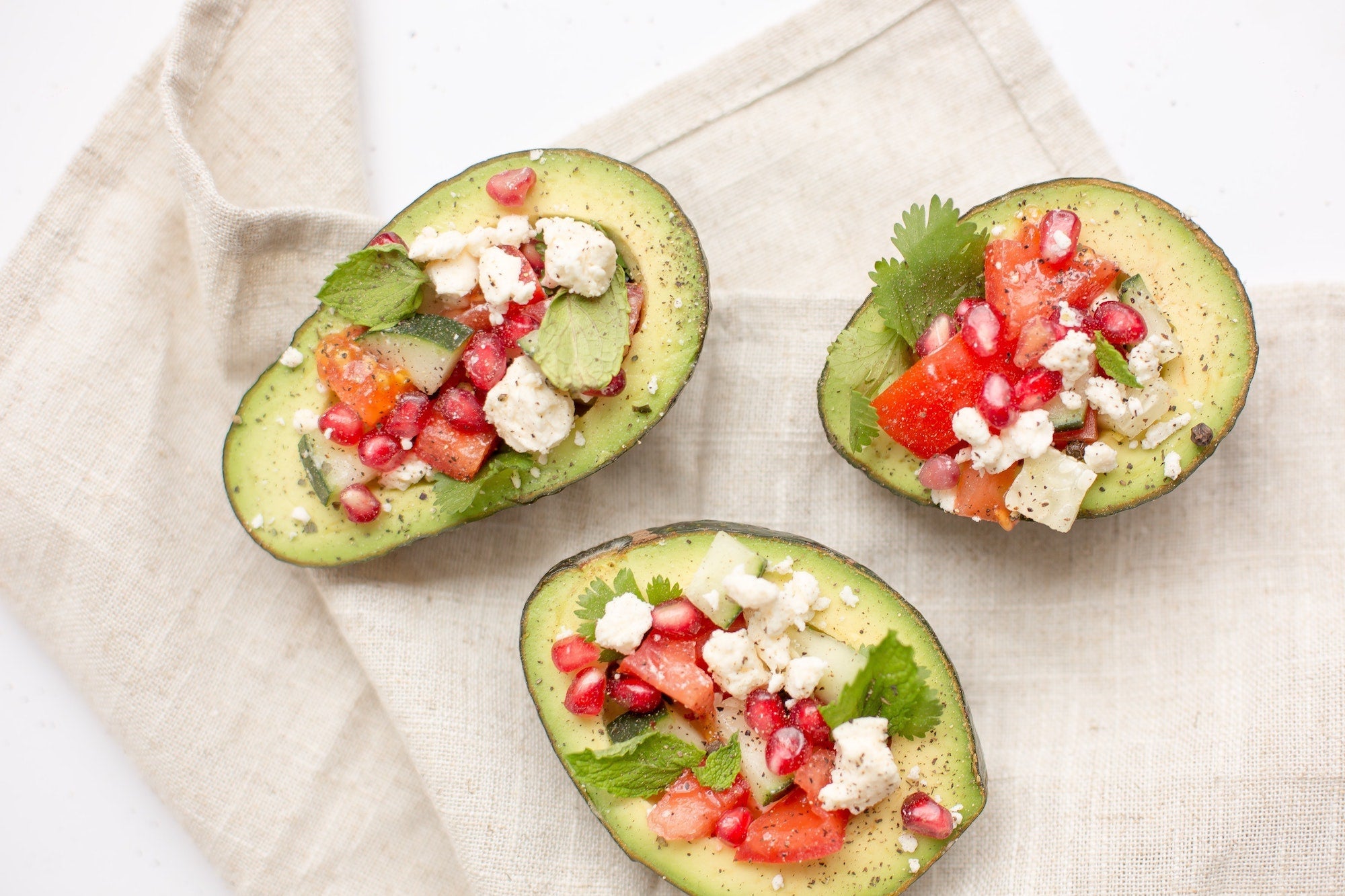Struggling with stress, brain fog, or fatigue? You might want to look into adaptogens.
What are adaptogens? They are active compounds found in certain plants and mushrooms that impact how the body responds to stress. These natural bioregulators help the body respond to stress by returning it to homeostasis. (Not too much stress, but not too little either.)
Adaptogens like lion’s mane and other brain nutrients have been linked to improved cognitive health, less inflammation, and improved blood sugar control.[*][*][*] (Fun fact: IQBAR has plenty of lion’s mane and other brain food to get you firing on all cylinders.) In this article, we’ll review the basics of adaptogens and other natural brain boosters like choline, omega 3s, and vitamin e. Ready to learn more? Let’s go.
Adaptogens and Stress
Chronic stress is dangerous to our health and has been linked to an increased risk of high blood pressure, cardiovascular disease, cancer, and depression.[*] Adaptogens like functional mushrooms are able to raise or lower hormone and chemical levels in the body to bring them back to a healthy level during times of stress. For example, when the body is under stress, it produces and releases more cortisol. Adaptogens help lower this cortisol surge.
Lion’s Mane
Lion’s mane is one of the best healthy mushrooms that has been used in traditional Chinese medicine for centuries. This mushroom is available in supplement form and has several possible benefits. Lion’s mane mushrooms get their name because of their white, shaggy appearance. As these large mushrooms grow, they start to resemble a lion’s mane (or a fuzzy muppet). Researchers are just starting to understand many of the health benefits associated with this adaptogenic mushroom.
Brain Health
Lion’s mane has been studied for its cognitive health benefits, and the results are promising. A small 2009 study found that when older adults with cognitive impairment consumed 3 grams of lion’s mane in the form of powdered mushroom every day for four months, they showed significant improvements in mental functioning.[*]
As we age, our brains start to lose their ability to grow and form new connections. This explains why many older adults develop cognitive decline.[*] Lion’s mane contains compounds that may stimulate the growth of brain cells called hericenones and erinacines.[*]
Animal studies have also found that lion’s mane may protect against Alzheimer’s disease. Alzheimer’s disease is a degenerative brain condition that causes memory loss. Lion’s mane has been found to reduce memory loss in mice.[*] Lion’s mane has not been studied in humans with Alzheimer’s disease.
Enhanced Mood
Taking lion’s mane regularly may improve symptoms of anxiety and depression. A small 2010 study examined the effects of lion’s mane on 30 women who were experiencing menopause. The study participants who received lion’s mane every day reported feeling less irritable and less anxious than the control group. They also had less difficulty concentrating throughout the day.[*]
Ulcer Prevention
Taking lion’s mane regularly may protect against stomach ulcers. That’s because lion’s mane may inhibit the growth of H. pylori, an infection in the gut that damages the stomach lining and leads to ulcers. A 2015 study found that mice treated with lion’s mane were significantly less likely to develop gastric ulcers than mice without the supplement.[*] This effect has not been studied in humans yet.
Diabetes Control
Lion’s mane may contribute to better blood sugar control in those with diabetes. Lion’s mane has been found to significantly lower blood sugar levels in both healthy and diabetic mice.[*] It has also been found to improve fat metabolism in rats and mice.[*]
Reduce Inflammation
Chronic inflammation in the body raises the risk of chronic health conditions.[*] Lion’s mane has been proven to have both antioxidant and anti-inflammatory properties.[*] It has also been found to boost immunity in animal studies.[*]
Cancer Risk
Lion’s mane may provide some protection against certain types of cancer. A 2011 study in Food & Function found that lion’s mane may be effective at targeting and destroying leukemia cells.[*] This study was conducted on human cells in a lab and has not been tested in humans.
A 2011 study found that taking lion’s mane extract daily may reduce the size of cancerous colon tumors in mice.[*] Further research is needed to determine if humans could benefit in the same way.
Before You Get Started
It’s important to note that most of the studies on lion’s mane were conducted on animals. If you’re pregnant or breastfeeding, don’t take lion’s mane before talking with your healthcare provider. There isn’t enough evidence to know if this adaptogen is safe during pregnancy.
Lion’s mane mushrooms may cause side effects in certain individuals. If you’re wondering if you can take lion’s mane with other vitamins and medications, seek medical advice.
Other Adaptogens
Lion’s mane isn’t the only adaptogenic herb that can lower stress and boost brain health. Here are some others to consider.
- Ashwagandha (Withania somnifera): Ashwagandha improves the body’s stress response and lowers cortisol levels in the blood.[*] It has also been linked with enhanced athletic performance.[*]
- Rhodiola (Rhodiola rosea): Rhodiola is an herb that may aid stress management in the body.[*] It has also been found to alleviate symptoms of chronic fatigue.[*]
- American ginseng (Panax quinquefolius): American ginseng is a root that has been used to treat fatigue. A 2013 study found that regularly taking American ginseng may improve cancer-related fatigue.[*] This adaptogen may also protect against seasonal respiratory viruses like the common cold.[*]
- Asian ginseng (Panax ginseng): Asian ginseng is another ginseng root that has several potential health benefits. It has been found to regulate mood and possibly prevent symptoms of depression.[*] It has also been used as a treatment for chronic fatigue.[*] Finally, ginseng is said to be one of the best herbs for memory.
Other Brain Nutrients
Adaptogens aren’t the only brain foods to keep on hand. There are other vitamins and nutrients that contribute to mental clarity and overall wellbeing. Fortunately, IQBAR has packed its healthy snacks with these five natural brain boosters.
#1: MCT’s
Medium-chain triglycerides (MCTs) are fats found in certain foods like coconut oil. They are a type of triglyceride or fat in the body. All triglycerides are either burned for energy or stored as fat.
MCTs are a unique type of triglyceride because the body uses them differently than long-chain triglycerides (LCTs). When we consume MCTs, they travel straight to the liver and are turned into ketones. Ketones are substances produced in the liver when fat is broken down. They are especially helpful for those following the ketogenic diet.
A diet rich in MCTs has been found to lead to greater fat-burning that diets high in LCTs.[*]
#2: Omega-3’s
Omega-3 fatty acids are a group of polyunsaturated fatty acids. Common omega-3s include EPA, DHA, and ALA. EPA and DHA can be found in fatty fish and shellfish. ALA is found in some vegetable oils.[*]
Omega-3s are beneficial for both our mental and physical health. Research shows that people who regularly consume omega-3s are less likely to be depressed.[*] In fact, when individuals with depression or anxiety start consuming omega-3s regularly, their symptoms improve.[*]
Omega-3s can also reduce the production of molecules that lead to inflammation in the body.[*] They have been linked with a lower risk of asthma in children and adolescents as well.[*]
#3: Flavonoids
Flavonoids are compounds found in fruits and vegetables, as well as teas, chocolate, and wine. They have powerful antioxidant properties and help to regulate healthy cellular activity. Their anti-inflammation effects lower the risk of chronic diseases like cardiovascular disease and type 2 diabetes.[*][*] Flavonoids may also slow the growth of cancer cells by keeping them from being able to divide and multiply.[*]
#4: Vitamin-E
Vitamin E is a group of 8 fat-soluble compounds. They’re available in the diet from nuts, seeds, some vegetables, and fortified foods like IQBAR.
Vitamin E has powerful antioxidant qualities and has been found to reduce cellular damage during oxidative stress.[*] Taking vitamin E regularly has been linked with lower systolic blood pressure and improved kidney health.[*][*] Taking vitamin E daily may even reduce pelvic pain and dysmenorrhea in women with endometriosis.[*]
#5: Choline
Choline is an essential nutrient found in some foods and supplements. Our bodies need choline for metabolism and cellular function. We also need choline to produce acetylcholine, a neurotransmitter needed for memory, mood, and muscle control.
Our bodies are able to make some choline but not enough, so we need to obtain it through our diets. According to the National Health and Nutrition Examination Survey (NHANES), most American adults do not consume enough choline.[*]
Small studies have found that taking a choline supplement may improve cognitive health and function.[*] An adequate intake of choline is also needed for healthy liver function and to prevent nonalcoholic fatty liver disease.[*] Excessive choline intake may lead to liver toxicity and low blood pressure (hypotension).[*]
Getting Your Brain Nutrients
While all of the adaptogens mentioned here can be found in certain plants and mushrooms, it can be a challenge to figure out how to get enough of them in your regular diet. It’s helpful to talk with your healthcare provider before starting any new supplement regimen.
A simple way to add more adaptogens into your diet is to stock up on quality health food products. Consider trying a 7 bar sampler or go all-in with a custom case of IQBARs to get plenty of adaptogens (including lion’s mane) from one delicious snack. Every bar is keto-friendly, vegan, non-GMO, gluten-free, dairy-free, and soy-free too. Learn more about why we pack our foods with brain-healthy adaptogens here.

